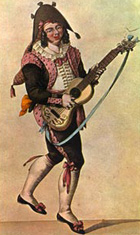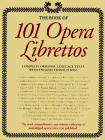|
Recitativo and spaghetti
Gioacchino Rossini was suspected of a certain laziness, and many popular stories might sound as a confirmation. I.e., he was supposed to have composed his best known "Barbiere" in a very short time, because as usual he was late in respecting the delivery date. Some say he did it in 7 days; others, like Lodovico Settimo Silvestri, suggest in 14. Whatever the precise length, it was anyway a very little time for such masterpieces.
However, all the work was done with Rossini in his bedroom, wearing his dressing-gown. A friend once pointed out that it was undoubtedly funny that he had composed the "Barber" without shaving himself for such a long time. Rossini promptly replied that if he had to get shaved, he would have had to get out of his house, and he therefore would never had completed his opera.
Another story of Rossini composing in the comfort of his bed: One day an impresario went visiting him and found him writing music in his bed. Rossini, without even looking at him, begged him to collect a sheet that had falled from the bed to the floor. When the impresario picked it, Rossini gave him the other sheet he was writing and asked him: "Which one do you think is the better?" "But... they are completely alike..." said the embarrassed impresario. "Well... you know... it was easier for me to write another one than to get off the bed and search and pick the first one and then come back to bed..." Rossini himself was very glad to describe his special virtues: here is what he told about his way of composing ouvertures: :Wait until the evening of the day before the "Prima" (first night). Nothing can better excite the inspiration than the presence of a "copista" (copyst) waiting for your work and the mess of an "impresario" tearing his hair. :I made the ouverture of Otello in a small room of the Palazzo Barbaja, where the baldest and rudest of directors had closed me in. :I wrote the ouverture of the Gazza Ladra the day before the "Prima" under the roof of the Scala Theatre, where I had been emprisonned by the director and secured by 4 scene-shifters. :For the Barbiere, I did better: I did not even compose an ouverture, I just took one already destinated to an opera called Elisabetta. :Public was very pleased.
|








 View opera IL BARBIERE DI SIVIGLIA
View opera IL BARBIERE DI SIVIGLIA